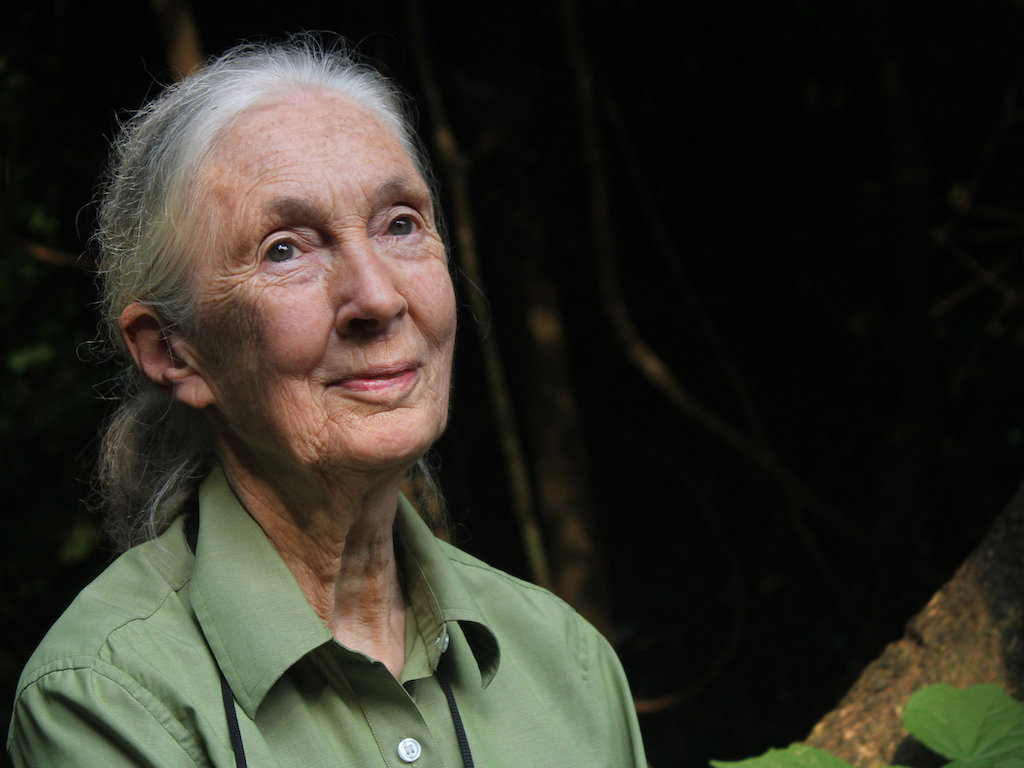3 Mins Read
85-year-old renowned anthropologist, animal activist and primatologist Jane Goodall recently posted a video message about the coronavirus pandemic, urging the world to reflect on their relationship with nature and wild animals. She voiced her heartfelt sadness about the ongoing tragedies due to the pandemic, whilst saying that we must show love and compassion to each other and to animals on this planet if we are to prevent future crises.
“My heart is with all who are sick, all who have lost loved ones. I just hope and pray that the nightmare will soon be over,” Goodall said in her video.
She continued, adding: “I also hope and pray that the nightmare will end for the wild animals who are captured and kept in horrible conditions for food. Or because some people believe that various animal parts can be used to cure diseases or give people strength or virility.”
Coronaviruses are zoonotic diseases, meaning they jump from animals to humans. The outbreak of Covid-19 has been traced back to a seafood market in Wuhan, which also sold a number of wild animals such as bats, civet cats and pangolins.
Recent research suggests that pangolins, which are poached for their keratin scales in traditional Chinese medicine and meat for consumption in parts of China and Vietnam, were the intermediary host of the virus. Previous coronavirus outbreaks have also been linked to wildlife that served as reservoir hosts for viruses found in bats, such as civet cats in the case of SARS and camels in MERS.
Despite China banning the trade and consumption of non-aquatic wild animals permanently since the pandemic began, the government has offered contradictory health advice that promoted the use of bear bile as a coronavirus treatment. Critics have also noted that the permanent ban is laden with exemptions for medicinal and non-food purposes, which has made it difficult for e-commerce firms to restrict wildlife products advertised for traditional medicinal uses online.
Goodall urged people to take the pandemic as a lesson, and understand that animals too feel pain and suffering. Environmental and climate problems have destroyed their natural habitats, and our continued exploitation of animals will only pose more global health threats.
“Many species of animals and plants have become extinct. And our too-close relationship with wild animals in the markets or when we use them for entertainment has unleashed the terror and misery of new viruses,” she warned.
Moving forward, humanity must begin to change the way we interact and live with other animals and the environment on this planet. Once we overcome the pandemic, we need to transform and rethink our relationships with nature and wild animals in order to prevent future outbreaks.
“We have amazing brains. We’re capable of love and compassion for each other. Let us also show love and compassion for the animals who are with us on this planet. Let us live in peace and harmony together,” Goodall concluded.
Her views have been echoed by many around the world since the coronavirus pandemic began – animal activists, environmentalists and corporate leaders alike. Top trend forecaster Li Edelkoort, for instance, believes that the pandemic offers the world a chance to reset its values for the benefit of people and the environment.
Paul Polman, the former Unilever CEO and current vice chair of the United Nations Global Compact and the chairman of the International Chambers of Commerce, also believes that the world needs to use Covid-19 to reflect on how human and planetary health must be protected in the future. In an op-ed published on Ethical Corp, Polman said that the current way of doing business – which destroys biodiversity and natural capital – must change, or there will be “more Covid-19s”.
Mirroring Goodall’s message, Polman wrote: “This is a wake-up call. We must live within our planetary boundaries to avoid future pandemics.”
Watch Jane Goodall’s full video message here & read our earlier Covid-19 coverage here.
Lead image courtesy of Maven Productions.




